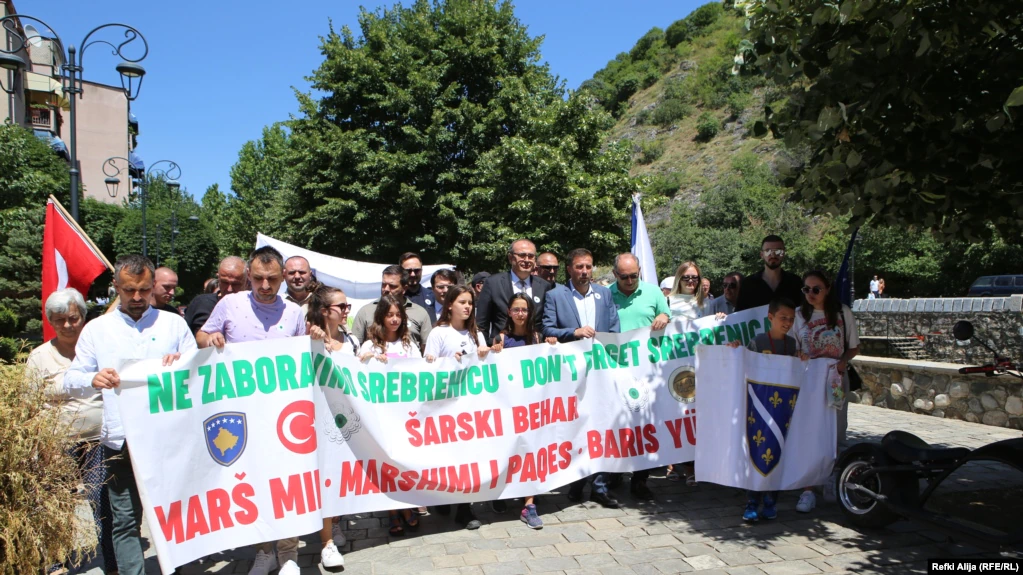In the city of Prizren, on Monday, July 11, a peace march was held on the 27th anniversary of the genocide in Srebrenica. After this march, as a symbol of peace, white doves were released.
March organizer Edis Jonuzi said July 11, 1995, when Bosnian Serb forces killed more than 8,000 Bosnian men and boys in Srebrenica, should never be forgotten.
“Today we are not in Potocari with the mothers of Srebrenica, but they are in our hearts and minds. Therefore, from here, we Bosniaks, Albanians, Turks, Roma and others honor the victims”, Jonuzi said.
In the peace march in Prizren, in addition to members of the Bosnian community, representatives of other communities living in Kosovo also participated, including the mayor of the Municipality, Shaqir Totaj.
This is the fifth time that a peace march has been held in Prizren in honor of the victims of the genocide.
Rasim Demiri, representative of the Vakat coalition, emphasized that “the genocide in Srebrenica did not happen, but was planned by the Serbian aggressor”.
Bosnians from Novi Pazari, a city in Serbia, also participated in the peace march in Prizren. The ambassador of Turkey in Kosovo, Çagri Sakar, was also present.
“We are continuing to make efforts to create peace and stability throughout the Balkans and beyond, so that the massacres of the past are not repeated,” said Sakar.
Before holding the march, through social networks, the prime minister of Kosovo, Albin Kurti, said that Serbia shamelessly denies the genocide in Srebrenica, while the president, Vjosa Osmani, said that “we must all unite against attempts to magnify or deny these terrible atrocities “.
On July 7, 2021, the Assembly of Kosovo adopted the Resolution on Srebrenica, which condemns the genocide of the Serbian regime against the members of the Bosnian nation. This resolution strongly condemns the denial of the genocide and declares July 11 as the Day of Remembrance of the Genocide in Srebrenica.
In 2007, the International Court in The Hague said that genocide had been committed in Srebrenica.
On June 8, 2021, the judges of the UN court confirmed the sentence of life imprisonment against the former commander of the Army of the Republika Srpska, Ratko Mlladić. He was found guilty of genocide in Srebrenica, persecution, crimes against humanity, extermination and other war crimes in Bosnia and Herzegovina, committed between 1992 and 1995.
At the end of July 2021, the former High Representative in Bosnia and Herzegovina, Valentin Inzko, made changes to the Criminal Code of this country, prohibiting the denial of genocide and other war crimes and the glorification of war criminals.








